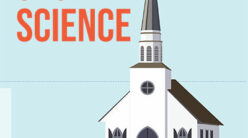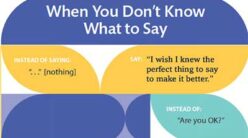Unplug.
Practice building strong in-person connections instead of online connections. Leave your phone on silent during conversations. Listen, engage, and commit to being fully present.
Join a club.
Libraries, churches, community centers, gyms, and schools often host clubs. Take the time to learn the names of other members and engage them in conversation.
Pay attention.
Be mindful of the people and objects around you. Look for someone who might need help or who could use a friend.
Volunteer.
Serving others is a great way to give back to the community, form friendships, and reduce feelings of depression and loneliness. Soup kitchens, animal shelters, nursing homes, schools, and churches are great places to start.
Practice hospitality.
Hospitality doesn’t have to involve inviting people to your home. You can invite people to join you in a planned activity, such as hiking, kayaking, or taking a class. (If they say no, you can still do the activity!) Start by inviting those who are the least intimidating or someone who also needs a friend.
Take care of yourself.
Exercise regularly, get outside, eat healthy food, and develop good sleep habits. The better you take care of yourself, the better you will feel and the more energy you will have for connecting with others. You can even combine self-care with socializing by inviting someone to join you for an activity or meal.
Take a class.
Learning how to do something new is a low-key way to meet new people and pick up a new hobby. This is particularly good for people with social anxiety who prefer gradually getting to know people in a group instead of at one-on-one meetups.
Schedule it.
Put special social activities in your schedule as part of your routine. If you don’t prioritize it, you will be tempted to postpone it.
Reconnect.
Reach out to friends and family members. Make time for a 10-minute phone call or a 30-minute walk once a week. Doing a DNA test can connect you with relatives and open avenues for self-discovery and ancestry research.
Talk to a pro.
A trained mental health professional can help you identify contributing factors and provide insights and resources for overcoming loneliness.
Sarah Gane Burton is a freelance writer and copy editor from Berrien Springs, Michigan, where she lives with her husband, Kevin, and two children.






